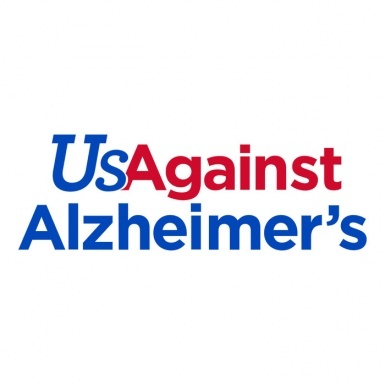Reflecting on the Uncounted Victims of COVID-19 on the National Day of Prayer

Sign up and receive information on the latest news and updates.
COVID-19 casualties, counted and uncounted, are mushrooming and getting closer to home!
Our family had a scare last week. Sandra, my daughter, is a social worker in a skilled nursing facility. She was exposed to the virus and developed familiar symptoms. We all anxiously waited three days for the test results. Fortunately, she tested NEGATIVE.
Among the many uncounted casualties are those who live and work in nursing homes like the one where Sandra serves and the one across the street from me.
Sandra eagerly returned to work Monday. She loves her work, her colleagues, the residents and their families.
I live on the campus of a beautiful continuous care retirement community. Across the street is the nursing facility, where approximately 140 residents are cared for by a dedicated team of caring staff members.
I see family members come to the windows of their loved ones and press their hands against the pane. I watch as staff members arrive for their long shifts and leave exhausted. I hear the sirens of emergency vehicles arriving and realize someone is in crisis.
But this is only a microcosm of the realities in the 15,600 nursing homes in the United States where some 1.3 million people are cared for by approximately 1,460,000 employees.
Nursing homes have been terribly impacted by the coronavirus, with more than 10,000 deaths among residents and staff members in nursing homes in 23 states that report this data. That represents about 27 percent of the coronavirus deaths in those states, according to the Kaiser Family Foundation.
Many residents are showing increasing signs of depression and failure to thrive as the result of isolation from loved ones.
Family members are growing increasingly stressed and frustrated by the imposed guidelines and policies.
I wonder if the confusion and agitation of those with Alzheimer’s and other forms of dementia is intensifying.
Family members of those nearing death plead to be permitted to keep vigil beside the bed of their spouse and/or parent. Thousands are dying with only the staff present to comfort them. I can only imagine the added pain of family members as they now grieve without having had the opportunity to hold their loved one’s hand and whisper “I love you” as a final goodbye.
The medical staff, social workers, and administrators are caught between regulatory guidelines and policies and the relational needs of residents and families. They are taking on added responsibilities way outside their job descriptions: administrators substituting as beauticians and CNAs; social workers becoming conflict mediators and surrogate family members; chaplains sweeping floors and delivering meals; housekeepers assisting with bathing and feeding.
I would like to help. My ability to respond is limited. After all, I’m in the vulnerable age group myself. But I’ve decided that I can do something:
- I can wear my mask and observe the CDC guidelines so that I don’t add to the workload of healthcare workers, or spread the disease to others.
- I can pray each day for the staff and residents and the family members, and I now consider each siren a call to prayer.
- I can walk past the windows with my dog, Millie, and wave at the persons inside.
- I can speak and write words of appreciation to the staff and not complain if I am inconvenienced by their preoccupation with their added workload.
- I can communicate with legislators for more attention and resources for the frail elderly, including nursing homes.
- I can call and/or write to family members I know who are caring for frail persons.
- I can plant and cultivate flowers in my own lawn that are visible to the residents and staff, providing some glimmer of beauty.
- I can make an added contribution to agencies that advocate and serve the frail elderly.
- I can work for systemic changes in attitudes toward and treatment of the elderly, especially the most frail.
On this National Day of Prayer, we all can “love our neighbor as ourselves,” including our neighbors who live and work in nursing homes and their families. They, too, are victims of COVID-19.
Kenneth Carder is a retired United Methodist bishop and pastor and Distinguished Professor Emeritus at Duke Divinity School. He is the author of Ministry with the Forgotten: Dementia through a Spiritual Lens, which grew out of his journey with his wife Linda who died October 3, 2019, after living for more than a decade with Frontotemperal Dementia. He serves as volunteer chaplain in the memory care facility in the retirement community where he lives in Chapin, SC. He is a member of UsAgainstAlzheimer’s Faith Coalition and wrote this blog for the National Day of Prayer, May 7, 2020.
